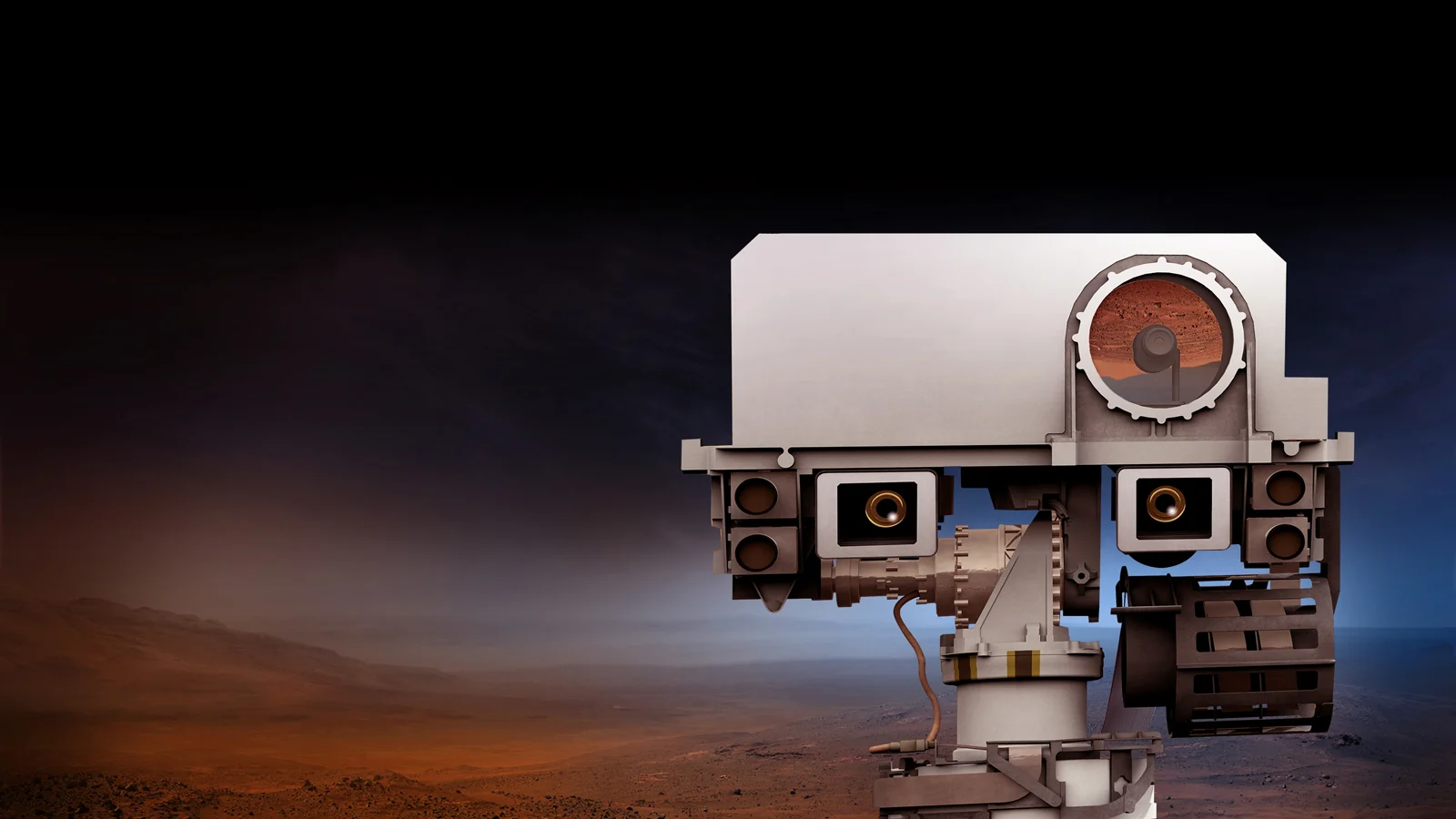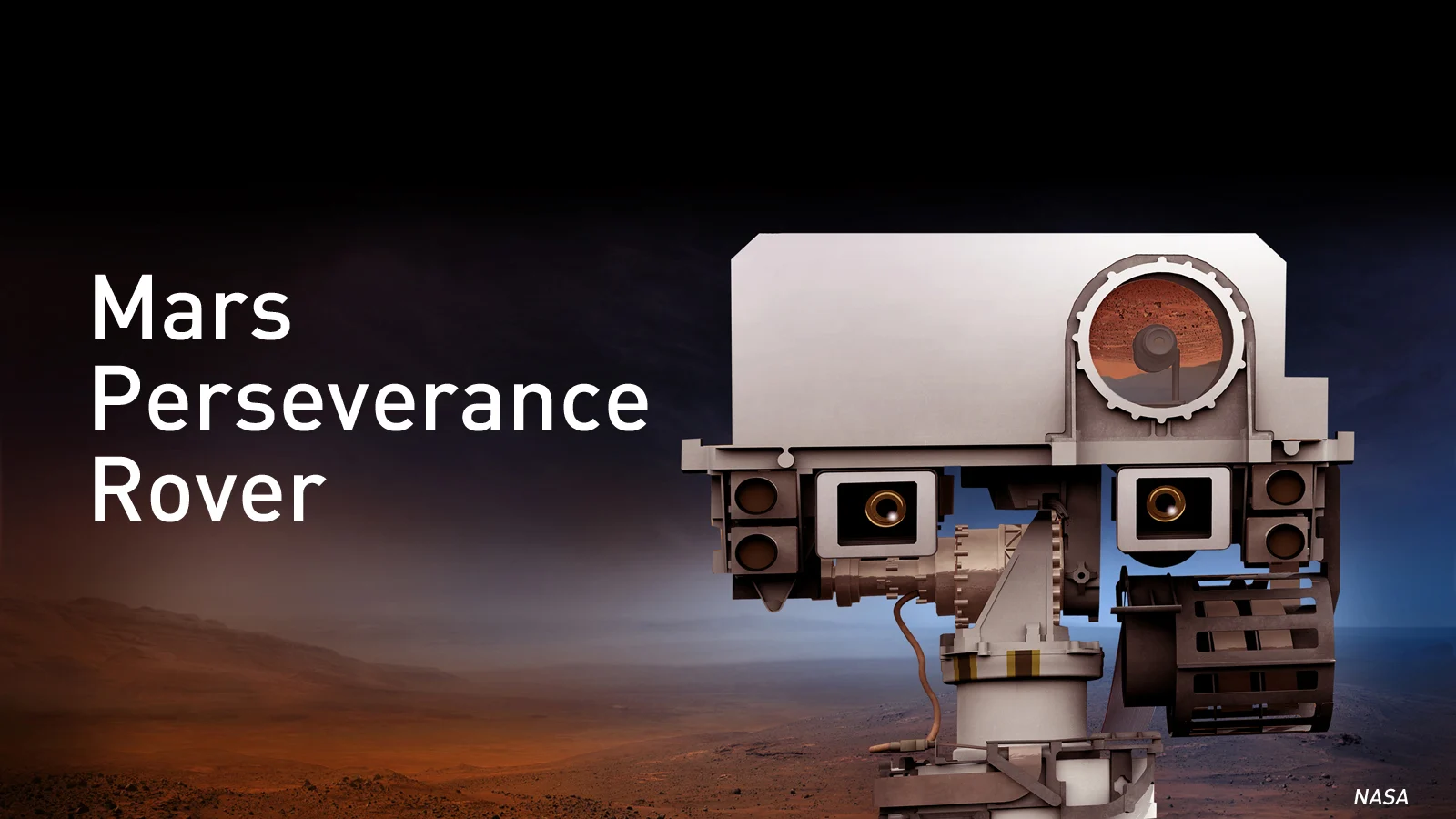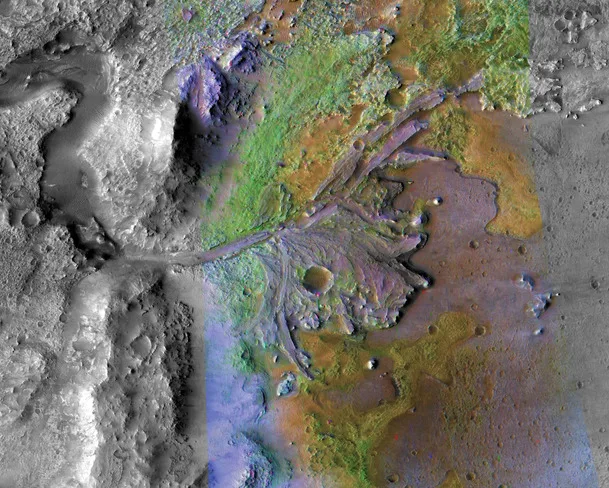
Say 'Hi' to Perseverance, the NASA rover that will search for ancient Mars life
NASA's next Mars mission takes one more step on its journey to the Red Planet
Chosen from thousands of entries and over 150 finalists, NASA's newest Mars rover has a new name - Perseverance.
Each time NASA sends a mission out into space - be it a spacecraft, a lander or a rover - before it leaves, it gets dubbed with a catchy, or at least memorable, name. For some missions, the researchers who designed it are the ones that come up with that name. A good example is NASA's Mars lander 'InSight', which stands for 'Interior Exploration using Seismic Investigations, Geodesy and Heat Transport'.
For Mars rovers, though, there's been a different tradition. The scientists and engineers give the robot its official name. So far, that has included Mars Pathfinder Rover, Mars Exploration Rover and Mars Science Laboratory.

Two NASA engineers on the JPL Mars Yard with 'Sojourner' (lower left), one of the Mars Exploration Rovers (left) and the Mars Science Laboratory 'Curiosity' (right). Credit: NASA/JPL-Caltech
For the more popular names of these rovers, though, NASA tapped into the creativity of America's school children. Before NASA's Pathfinder mission launched in 1996, its rover was named Sojourner by then-12-year-old Valerie Ambroise from Connecticut. In 2003, the twin MER rovers were given the names Spirit and Opportunity by a 3rd-grade student from Arizona named Sofi Collis.
Curiosity, currently the only working rover on Mars, was named in 2009 by Kansas sixth-grader Clara Ma.
WATCH BELOW: NASA CURIOSITY SNAPS BILLION PIXEL PANORAMA ON MARS
When it came time to name their new Mars 2020 rover, a near-twin of Curiosity that is set to launch in July of this year, and land on the Red Planet in February of 2021, NASA once again turned to America's youth.
After putting out the call in August 2019, they received more than 28,000 essays by students from Kindergarten to grade 12, from every state and territory in the United States. Thousands of volunteers managed to whittle that down to just 155 semifinalists earlier this year. NASA then narrowed the list of choices down to just nine and submitted them to the public to vote.
Clarity, submitted by Nora Benitez of California,
Courage, submitted by Tori Gray of Louisiana,
Endurance, submitted by Oliver Jacobs of Virginia,
Fortitude, submitted by Anthony Yoon of Oklahoma,
Ingenuity, submitted by Vaneeza Rupani of Alabama,
Perseverance, submitted by Alexander Mather of Virginia,
Promise, submitted by Amira Shanshiry of Massachusetts,
Tenacity, submitted by Eamon Reilly of Pennsylvania, and
Vision, submitted by Hadley Green of Mississippi.
Now, after all those votes were tallied and the list went back to the NASA team for final selection, we finally have the result! Perseverance!

Credit: NASA
The winning name was submitted by Alexander Mather, a seventh-grader at Lake Braddock Secondary School in Burke, Virginia.
"Alex's entry captured the spirit of exploration," Thomas Zurbuchen, associate administrator of the Science Mission Directorate, said in a NASA statement. "Like every exploration mission before, our rover is going to face challenges, and it's going to make amazing discoveries. It's already surmounted many obstacles to get us to the point where we are today – processing for launch. Alex and his classmates are the Artemis Generation, and they're going to be taking the next steps into space that lead to Mars. That inspiring work will always require perseverance. We can't wait to see that nameplate on Mars."
Perseverance is scheduled to lift off from Cape Canaveral on July 17, and that launch will put it on course to land in Mars' Jezero Crater on February 18, 2021.

This false-colour overhead map shows the river delta in Jezero Crater that Perseverance will land near in February 2021. The hope is that this feature will hold a treasure trove of scientific evidence that Mars once hosted abundant life. Credit: NASA/JPL-Caltech/JHUAPL/MSSS/Brown University
Curiosity was specifically outfitted to search for signs that Mars once had the right environmental conditions that would have been friendly for life. It has since proven that, sending back evidence from Gale Crater that revealed the planet was once much warmer and wetter in its past. Also, data from the rover showed that liquid water on the surface of Mars would have been perfect for the development of life as we know it.
Mars Perseverance will take the search for Mars life one step further. It will be carrying a new suite of instruments that it will use to look for direct evidence that the Red Planet once hosted primitive forms life. Also, it will collect samples, which will be left on the surface to be picked up by a future mission, for return to Earth.
Source: NASA











